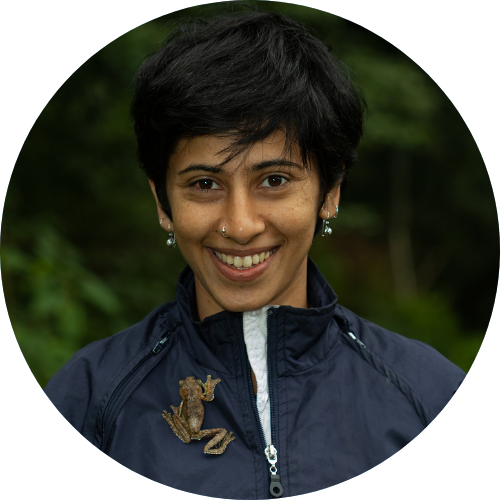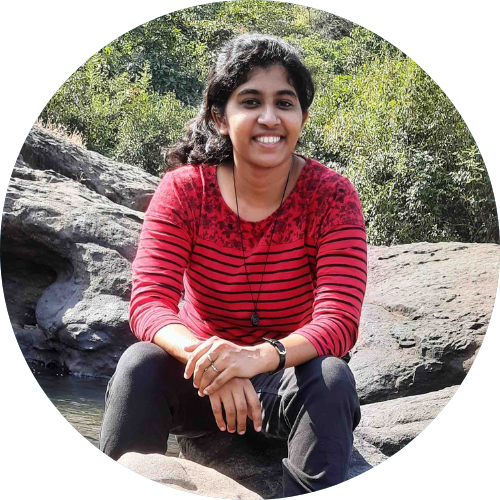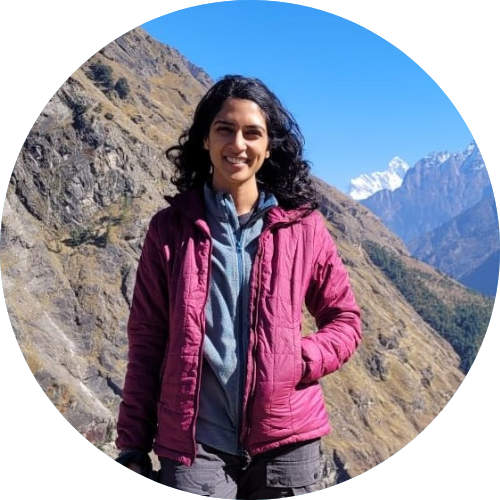Team

Dr. Vishnupriya Sankararaman
Vishnupriya joined WCS-India as a Research Assistant after completing her Master's in Wildlife Biology and Conservation from the National Centre for Biological Sciences and WCS-India. In 2022, she earned her PhD in Ecology from Penn State University, focusing on amphibian community structure in agroforest landscapes of the Western Ghats. Her expertise in quantitative ecology informs her use of modeling approaches such as community occupancy models and decision-making tools to promote biodiversity conservation alongside agricultural goals on private lands. Passionate about studying various species, including freshwater fishes, amphibians, and birds, she thrives in the challenging environments of the Western Ghats, finding joy in exploring its diverse landscapes despite the presence of leeches.

Preethi S
Preethi holds a Master's in Wildlife Biology from AVC College, Tamil Nadu. For her PG thesis, she worked on the Socio-ecological importance of the Nanmangalam Reserve Forest in Chennai. Over the last year, she has worked with BNHS on the Ringing and migration project at Point Calimere and Kanyakumari while showcasing the importance of alternative habitats, such as restored saltpans as viable spaces for migratory shorebirds to roost, feed and even breed. At WCS-India, she is working under the Western Ghats - Agroforests programme. She is an amateur wildlife photographer who loves travelling, baking, and making miniature sculptures.

Raagini Muddaiah
Raagini is a Zoology graduate who obtained her Master of Science in Wildlife Biology from the University of Queensland, Australia. She worked as a Project Associate at Wildlife Institute of India, carrying out a census for snow leopards in Uttarakhand. She has previously worked on projects involving rodent and feral cat control in Australia. Taking forward her interest in promoting indigenous species diversity, her current work at WCS-India focuses on biodiversity in agroforests of the Western Ghats.
.png?ver=hrEhgVWEOUxzdSvYH2XUDg%3d%3d)
Rajiv N V
With a Master’s in Wildlife Conservation Action, Rajiv transitioned from software engineering to wildlife research, driven by a connection to nature. His work spans passive acoustic monitoring of amphibians and exploratory herpetological surveys in the remote hill forests of eastern Arunachal Pradesh. He has also studied the habitat preference of the Kottigehara dancing frog in the central Western Ghats, Karnataka. Passionate about reptiles and amphibians, he is particularly fascinated by their role as bio-indicators of ecosystem health. Keen to protect these species, he aims to integrate ecological research with conservation action to safeguard their habitats. Beyond research, he embraces minimalism, enjoys running, and finds joy in leisure cooking.